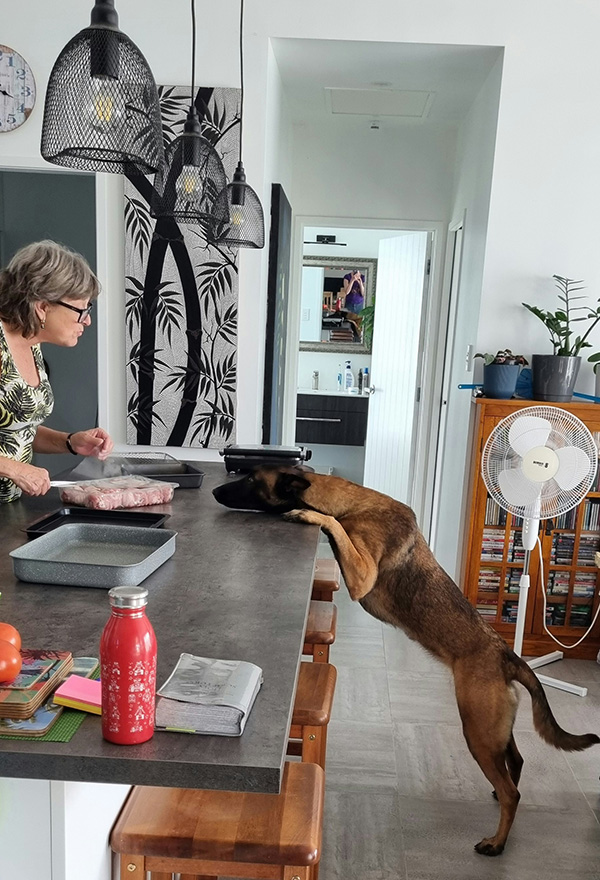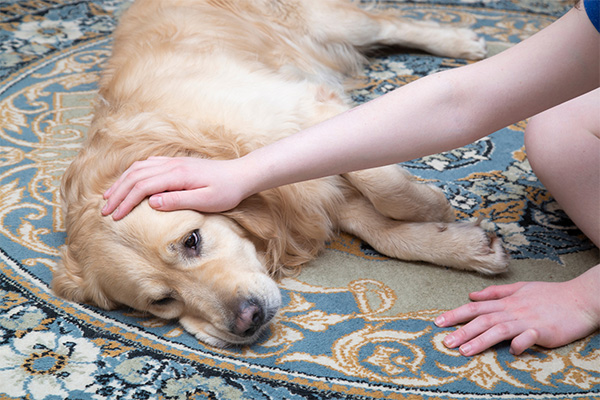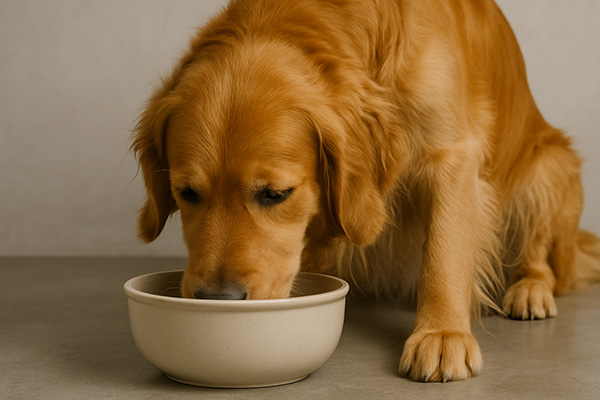Black pepper is a widely used spice that adds a kick to many of our favorite meals. However, pet owners often question whether it's safe for dogs to consume black pepper. While a tiny amount is unlikely to harm dogs, it doesn’t belong in your dog's diet. Let’s look closer at whether black pepper is safe for dogs, the possible health risks, and what steps to take if your dog consumes it.
Is Black Pepper Safe for Dogs?
In small amounts, black pepper is generally considered a dog-safe food that is nontoxic but offers no real health benefits. When cooking dog food, it's best to stick to lean meats, vegetables, and grains without adding any herbs or other spices. Since dogs don’t need spices for flavor, there’s no reason to feed them intentionally. While most dogs will be fine if they accidentally eat black pepper, it’s best to avoid giving it to them.
Potential Health Concerns of Black Pepper for Dogs

Even though black pepper isn’t harmful to dogs in tiny amounts, larger quantities could cause issues. Here’s what to watch for:
Gastrointestinal Upset
One of dogs' most common reactions to black pepper is digestive distress. The piperine in black pepper can irritate the stomach lining, leading to symptoms such as vomiting, diarrhea, gas, abdominal discomfort, or loss of appetite. Dogs with sensitive stomachs may react even to small amounts, while larger ingestions can cause more severe irritation. Veterinary attention may be necessary if symptoms persist for more than 24 hours.
Respiratory Irritation (If Inhaled)
Dogs have highly sensitive noses, and inhaling black pepper powder can irritate a dog's respiratory system and cause sneezing, coughing, or nasal irritation. It might even lead to temporary breathing difficulties in severe cases, especially in brachycephalic breeds (like Bulldogs or Pugs). If your dog accidentally sniffs a large amount of pepper and shows signs of respiratory distress, consult a veterinarian immediately.
Choking Hazard (Whole Peppercorns)
Whole peppercorns can be a choking hazard, especially for small dogs or those who swallow their food without chewing. If a peppercorn gets lodged in the throat, it may cause gagging, coughing, or even a partial airway obstruction. In rare cases, emergency intervention may be needed to remove the obstruction.
Allergic Reaction (Rare but Possible)
Though uncommon, some dogs may have an allergic reaction to black pepper. Symptoms could include itching, facial swelling, hives, or difficulty breathing. If you observe any of these symptoms after your dog eats black pepper, contact a veterinarian immediately, as allergic reactions can worsen rapidly.
Symptoms to Watch for After Your Dog Eats Black Pepper

If your dog has consumed black pepper, keep a close eye out for these concerning signs of distress, which may indicate irritation or a more serious reaction:
Gastrointestinal Symptoms
If your dog consumes black pepper, the most common symptoms will typically involve digestive upset. You may observe vomiting, diarrhea, excessive drooling, or loss of appetite within a few hours of ingestion. Some dogs may display abdominal discomfort, such as whining, restlessness, or a hunched posture. These symptoms typically resolve within 24 hours, but they could persist longer if a large amount is ingested.
Respiratory Irritation
When dogs inhale black pepper powder, they may experience respiratory symptoms. These may include sneezing, coughing, nasal discharge, or rubbing their nose and face. Brachycephalic breeds, such as Pugs and Bulldogs, are particularly susceptible to breathing difficulties caused by pepper inhalation. While these symptoms are generally temporary, they can be distressing for your pet.
Allergic Reactions
Although uncommon, some dogs may experience an allergic reaction to black pepper. Watch for facial swelling, hives, itching, or difficulty breathing. These symptoms usually develop quickly and require immediate veterinary care. While anaphylactic reactions are rare, they can be life-threatening if not treated without delay.
Choking Hazards
Whole peppercorns present a mechanical danger, especially for small dogs. Choking may be indicated by gagging, intense coughing, trouble breathing, or bluish gums. If you suspect your dog is choking on a peppercorn, seek emergency veterinary care immediately as this can become life-threatening very quickly.
Neurological Symptoms
In extreme cases of massive ingestion, neurological effects may occur. These can include disorientation, tremors, or even seizures. Such symptoms indicate poisoning and require emergency veterinary intervention. Fortunately, this level of reaction is exceptionally rare with black pepper exposure.
Behavioral Changes
Some dogs may exhibit behavioral signs of discomfort after ingesting pepper. These can include lethargy, excessive thirst, or unusual restlessness. While not necessarily dangerous on their own, they may indicate your pet isn't feeling well and should be monitored closely.
What to Do If Your Dog Eats Black Pepper

Provide Fresh Water
If your dog has eaten black pepper, the first thing you should do is offer plenty of fresh water. Drinking water helps:
Dilute the pepper in their system
Flush out irritation from their mouth, throat, and stomach
Prevent dehydration, especially if they experience vomiting or diarrhea
Encourage your dog to drink by keeping their water bowl clean and easily accessible. If they’re reluctant, try adding a splash of low-sodium broth (dog-safe) to make it more appealing.
Monitor for Symptoms
While a tiny amount of black pepper is unlikely to cause serious harm, larger quantities could lead to:
Stomach upset (vomiting, diarrhea, or loss of appetite)
Excessive drooling or pawing at the mouth (due to the spicy taste)
Lethargy or discomfort
Keep a close eye on your dog for the next 12 to 24 hours. Most mild symptoms should resolve on their own; however, if they persist or worsen, further action may be necessary.
Consult with a Veterinarian if Needed
Seek immediate veterinary care if your dog has unusual symptoms or has had:
Food heavily seasoned with black pepper (especially if it was mixed with other harmful spices)
Shows severe symptoms (difficulty breathing, swelling, or persistent vomiting/diarrhea)
Has a known sensitivity to spices or a history of digestive issues
When in doubt, call your vet for advice. They can assess whether your dog needs medical attention. It’s always better to be safe, especially when it comes to your pet’s health!
